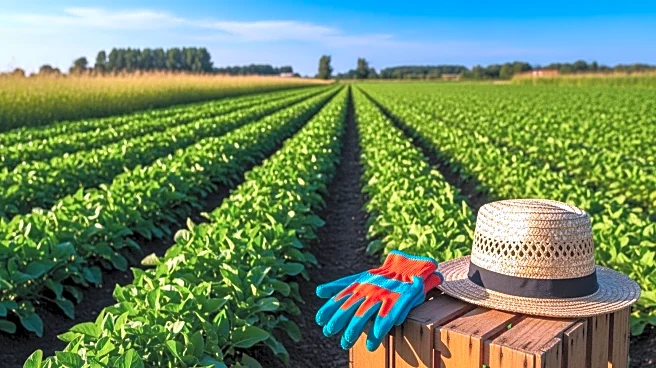What is the story about?
What's Happening?
The feminization of agriculture refers to the increasing involvement of women in agricultural activities, a trend driven by the migration of men to non-agricultural sectors and various socio-economic changes. This shift is particularly evident in developing nations, where women are taking on more significant roles in farming, ensuring food security, and sustaining rural livelihoods. The phenomenon is characterized by high female labor participation, a rise in female-headed farm households, and improved decision-making power for women in agricultural settings. Factors contributing to this trend include male outmigration, economic transitions, conflicts, policy gaps, and technological transformations that often exclude women from modern agricultural practices.
Why It's Important?
The feminization of agriculture has profound implications for rural economies, gender equality, and food security. Women's increased participation in agriculture can enhance family incomes and strengthen rural economies, although persistent wage gaps and limited access to credit and capital remain challenges. This shift also contributes to gender equality and empowerment, as women gain social recognition and improved status. However, patriarchal structures and limited decision-making autonomy can restrict the scope of empowerment. Women's central role in subsistence farming makes them key actors in ensuring household food security, yet their restricted access to land, technology, and finance can compromise productivity. Additionally, women's traditional knowledge supports sustainable farming practices, but their exclusion from training limits the adoption of eco-friendly techniques.
What's Next?
Addressing the challenges faced by women in agriculture requires targeted policy responses. These include improving women's access to land and property rights, financial services, and modern agricultural technologies. Enhancing women's health and safety in agricultural work, reducing time poverty, and overcoming social and cultural barriers are also critical. By implementing these measures, the potential of women in agriculture can be fully realized, contributing to more equitable and sustainable rural development.
Beyond the Headlines
The feminization of agriculture highlights broader societal shifts, including changing gender roles and the need for policies that support women's empowerment in rural areas. It underscores the importance of integrating gender perspectives into agricultural policies and programs to ensure that women can fully participate in and benefit from agricultural development. This trend also calls for a reevaluation of traditional agricultural practices and the promotion of inclusive and sustainable farming methods.















